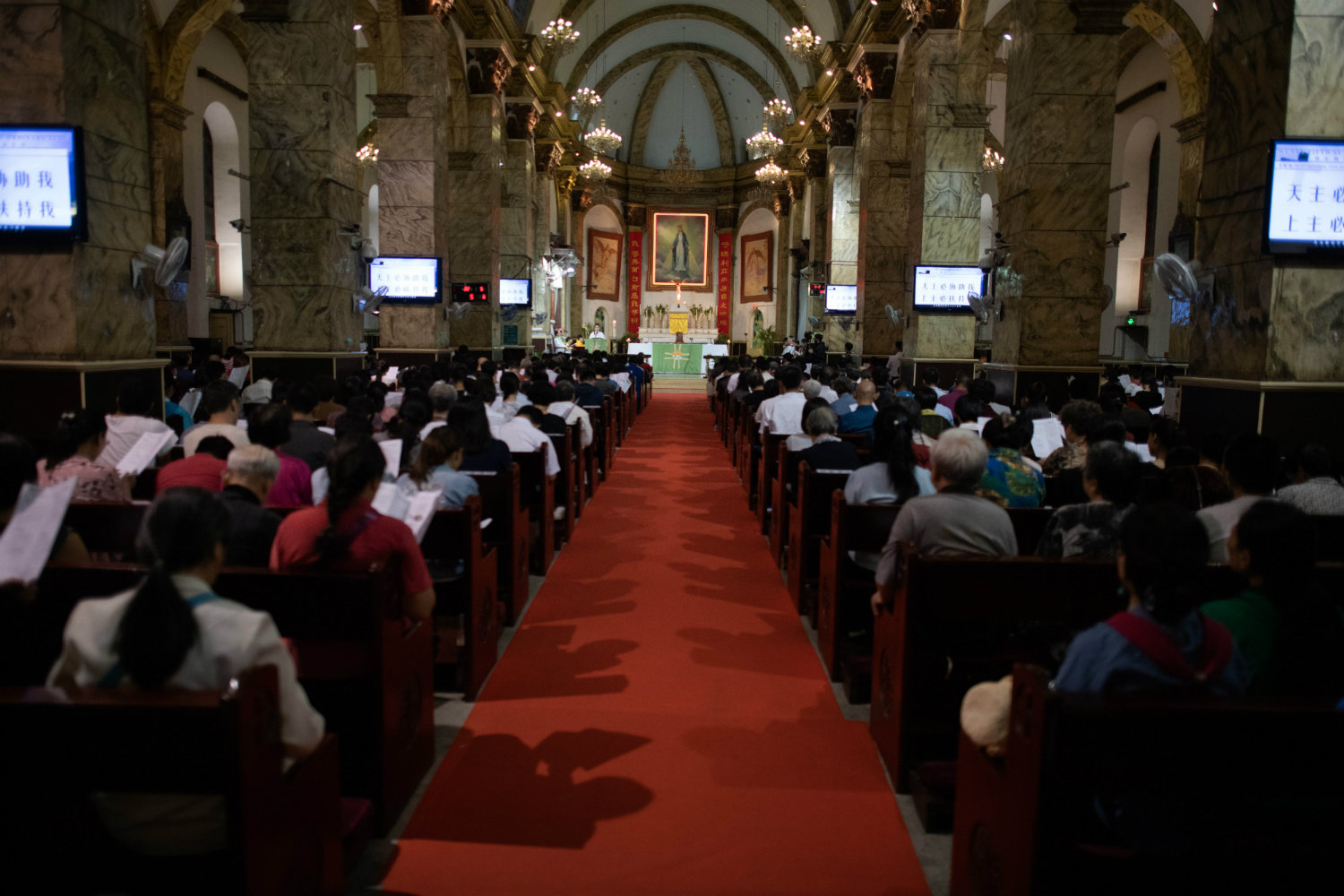Vatican announces historic deal with China on bishops

Agency
September 23, 2018

VATICAN CITY –The Vatican on Saturday announced a historic accord with China on the appointment of bishops in the Communist country as Pope Francis recognised seven Beijing-appointed bishops in a move that could pave the way for a rapprochement between the Catholic Church and the world's most populous country.
Beijing immediately said it hoped for better relations, while Taiwan said its ties with the Vatican were safe despite the deal with China.
There are an estimated 12 million Catholics in China divided between a government-run association whose clergy are chosen by the Communist Party and an unofficial church which swears allegiance to the Vatican.
The Vatican has not had diplomatic relations with Beijing since 1951, two years after the founding of the communist People's Republic.
This year, churches have been destroyed in some Chinese regions and there has been a clampdown on Bible sales. Crosses have been removed from church tops, printed religious materials and holy items confiscated, and church-run kindergartens closed.
The preliminary agreement with China "has been agreed following a long process of careful negotiation and foresees the possibility of periodic reviews of its application," the Vatican said in a statement issued as Pope Francis began a visit to the Baltic states.
"It concerns the nomination of Bishops, a question of great importance for the life of the Church, and creates the conditions for greater collaboration at the bilateral level," it said.
Pope Francis meanwhile recognised seven bishops who had been ordained in China without the approval of the Holy See, his office said.
"Pope Francis hopes that, with these decisions, a new process may begin that will allow the wounds of the past to be overcome, leading to the full communion of all Chinese Catholics," a statement said.
The decision also readmits an eighth bishop who died last year and "had expressed the desire to be reconciled with the Apostolic See," it said.
Vatican spokesman Greg Burke, speaking in the Lithuanian capital Vilnius, told reporters the aim of the accord "is not political but pastoral, allowing the faithful to have bishops who are in communion with Rome but at the same time recognised by Chinese authorities."
China said the "provisional" agreement was signed in Beijing by vice foreign minister Wang Chao and a Vatican delegation headed by the under secretary for relations with state, Antoine Camilleri, and added that the two sides "will continue to maintain communication and push forward the improvement of bilateral relations".
The Vatican is one of only 17 countries around the world that recognises Taipei instead of Beijing but Pope Francis has sought to improve ties with China since he took office in 2013.
- 'Strategic, naive' -
Previous attempts to restore ties foundered over Beijing's insistence that the Vatican must give up recognition of its rival Taiwan and promise not to interfere in religious issues in China.
But the Taiwanese foreign ministry said Taipei would not lose its only diplomatic ally in Europe despite the agreement and said it hoped the Holy See would also make sure Catholics on the mainland "receive due protection and not be subject to repression".
Analysts warn that Beijing could use the accord to further crack down on Catholic faithful in China.
Jonathan Sullivan, director of the China Policy Institute at the University of Nottingham, described the accord as "a strategic move on China's part; and a naive one on the Vatican's".
According to the expert, China's Communist party will frame the deal as the Vatican's seal of approval to the state-run Catholic Church, at a time when Christian believers are facing a severe crackdown on their beliefs and practises.
"Ultimately, the Party would like to subsume all forms of worship under state organs that make it easier to manage and ensure that everyone's primary loyalty is to the state," Sullivan told AFP.
The announcement came as Pope Francis arrived in Catholic Lithuania to honour victims, including Catholic priests and bishops, of the region's Nazi and Soviet occupations.
The pontiff's four-day trip to the northeastern edge of the European Union and NATO alliance brings him geographically close to Russia, where Vatican diplomats have been trying for years to arrange a papal visit.
The pontiff will visit mainly Protestant Latvia on Monday and secular Estonia on Tuesday as all three Baltic states mark 100 years of independence this year.
But the celebrations risk being overshadowed by a fresh wave of devastating claims of sexual abuse by clergy across the globe.
---


Leave Comment